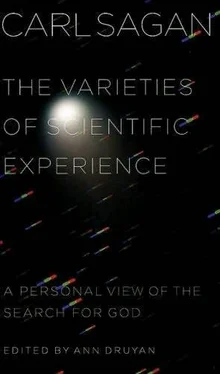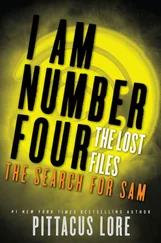The story of God's commandment to Abraham to kill his son, Isaac, is an example of the transition from human to animal sacrifice. After a while people decided it really wasn't worthwhile killing their own children in this way; they would symbolically kill their own children by just getting a goat and killing it. In fact, the general decline in the practice of human and animal sacrifice in the evolution of religion is worth some attention. The Judaic and therefore also the Christian-Islamic religions began when human and animal sacrifice was all the rage.
What does that kind of propitiation mean? It is a wish for the course of nature to be different from what it otherwise would be. It provides the illusion that by some sequence of ritual actions we are able to influence forces of nature that are otherwise inaccessible to us. And therefore it involves a change from the usual course of nature, which was described very nicely by Ivan Turgenev as follows: "Whatever a man prays for, he prays for a miracle. Every prayer reduces itself to this: 'Great God, grant that twice two be not four.'" And from a different tradition, let me quote a Yiddish proverb, which goes, "If praying did any good, they would be hiring men to pray."
Now, does prayer do any good or not? It certainly is still with us. It certainly is connected with those activities of our ancestors, and, as I will argue in a moment, it's certainly connected with the behavior of all of us when we are children. Sir Francis Galton, a cousin of Charles Darwin, said, "Here we've been praying for all these years and nobody seems to know if it does any good or not. Is there a statistical test of the efficacy of prayer?" And he concluded that of course there is. Especially in Britain, because not only do people pray in Britain but people pray differentially. Some people are more in the prayer business than others. Do those who pray more get favors from heaven more? This is in late Victorian times, when these particular views were still more outrageous than they are today. So here is just a little hint of Galton's approach, his sense of scientific protocol:
There are many common maladies whose course is so thoroughly well understood as to admit of accurate tables of probability being constructed for their duration and result. Such are fractures and amputations. Now, it would be perfectly practicable to select out of the patients at different hospitals under treatment for fractures and amputations two considerable groups. The one consisting of markedly religious and piously befriended individuals, the other of those who were remarkably cold-hearted and neglected. An honest comparison of their respective periods of treatment and the results would manifest a distinct proof of the efficacy of prayer, if it existed to even a minute fraction of the amount that religious teachers exhort us to believe.
And then he goes on to say,
An enquiry of a somewhat similar nature may be made into the longevity of persons whose lives are prayed for. Also, that of the praying classes generally.
And so he then goes on to compare the mean longevity of sovereigns with that of other classes of persons of equal affluence and gives a table of the results. And the conclusion he states as follows:
The sovereigns are literally the shortest-lived of all who have the advantage of affluence,
from which he deduces that the efficacy of prayer is not yet demonstrated.
Now, this has not led to a school of people who do statistical tests of the efficacy of prayer. Hard to know why not. Except that people who don't believe in prayer perhaps are not very interested in this, and those who do are convinced of its efficacy and therefore do not need to go to statistical tests. There is no question that there is something about prayer that seems to work. Surely it provides solace and comfort. It's a way of working through problems. It's a way of reviewing events that have happened, of connecting the past with the future. It does something good. But that doesn't mean that it is as alleged. It doesn't say anything about the existence of a god. It doesn't say anything about the external world. It is a procedure, which on some level makes us feel better.
I maintain that everyone starts out with that sort of attitude. We all grow up in the land of the giants when we are very small and the adults are very large. And then, through a set of slow stages, we grow up, and we become one of the adults. But still within us, surely, is some part of our childhood that hasn't disappeared and hasn't grown up. It's just there. In your formative years, you then learn from direct experience, absolutely incontrovertible, that there are much larger, much older, much wiser, and much more powerful creatures in the universe than you. And your strongest emotional bonds are to them. And, among other things, they are sometimes angry with you, and then you have to work through the anger. And they ask you to do things that you may not want to do, and you must propitiate them, you must apologize, you must do a set of things. Now, how likely is it that after we are all grown up we've fully detached ourselves from this formative experience? Isn't it much more likely that there remains a part of us that is still in the practice of this kind of childhood dealing with parents and other adults? Could that have something to do with prayer specifically and with religious beliefs in general?
Well, this is in fact the scandalous view of Sigmund Freud in Totem and Taboo and The Future of an Illusion, and other famous books of the first few decades of the twentieth century. And Freud's view was that "at bottom God is nothing more than an exalted father." Of course Freud was living in Vienna at the end of the nineteenth century, in a very patriarchal kind of Judeo-Christian tradition, and therefore it was a very patriarchal kind of god. So it may be that his conclusions do not apply to all religions and all societies, but it's very easy to understand that those religions and those societies lent themselves very much to the Freudian hypothesis.
To say it still more explicitly, the view here is that we start out with the sense that our parents are omnipotent and omniscient, we develop certain relations with them-different degrees of mental health in those relationships, depending on the nature of the relationship between the parents and the child- and then we grow up, and as we do so, we discover that our parents are not perfect. No one is, of course. There is a part of us that is deeply disappointed. There's a part of us that has been inducted into a dominance hierarchy and doesn't like the uncertainty of having to deal with things for ourselves. You know, one of the many reasons that are given for the advantages of military life and other powerfully hierarchical societies is that it's not required to think for oneself very much. There's something calming about that. And so, according to Freud, we then foist upon the cosmos our own emotional predispositions. You may or may not think that this explains a great deal about religion, but it is something I believe worth considering. Fyodor Dostoyevsky wrote in The Brothers Karamazov,
So long as man remains free he strives for nothing so incessantly and so painfully as to find someone to worship.
I would like now to turn to a related subject, and that has to do with the influence of molecules on the emotions and perceptions. By molecules I just mean chemicals-natural chemicals in the environment or synthetic chemicals made in laboratories. We, of course, all understand that behavior is modified by molecules. Humans all over the world have had experience with substances like ethanol that certainly produced changes in behavior and attitudes and perceptions of the world. We know about tranquilizers that likewise do that. But let us consider a very specific case, and that is manic-depressive syndrome. It's a terrible disease. The manic-depressive swings between two extremes, and it's hard for me to see which is more ghastly: one in the utter pit of despair and the other a kind of high-flying exaltation in which everything seems possible-to the extent that many sufferers of this disease when they are at the manic end of the pendulum believe that they are God. And this is, of course, disabling. Both ends of the swing are disabling, and you don't spend much time in the middle, just like a pendulum, in which you move more slowly at the ends than you do through the middle. It's a disease found in every human culture, and until the last two or three decades there was no effective treatment. Well, there is now a material that powerfully ameliorates manic-depressive syndrome in many patients, provided the dose of this material is administered very carefully. People who have taken this substance in regularly controlled doses, many of them, find that they are able to function again. Their lives are normalized, and they consider it a great blessing. What is this material? It is lithium, a salt. Lithium is a chemical element, the third simplest after hydrogen and helium. It's astonishing that such a simple material could have so profound an effect on a subset of the human population and change not just behavior; if you talk to ex-manic-depressives-that is, manic-depressives whose disease is controlled by regular administration of lithium-their account from the inside of how transforming this treatment is, is really stunning.
Читать дальше










